|
It was true--she adored an occasional whispered gossip session at a family function or a sympathetic eye roll from across a table loaded down with food--but she was fiercely glad that this crazy family was her family, and that she was one of the crazy ones, too. These are not affiliate links. I just love Etsy and believe in supporting small businesses!
0 Comments
“I carried a watermelon.” As I put down Naima Simone’s Scoring with the Wrong Twin, I feel distinctly similar to Baby of Dirty Dancing fame, having her eyes opened to adventure, fun, and dirtiness (i.e. good old-fashioned grinding) for the first time. If you’ve been reading this blog, you know that I’m a long-time reader and lover of romance, but this was my second Naima Simone book, and it was amazing. So amazing that concluding the book felt like returning to earth after hovering above it for a while, my cheeks blazing. All this, despite the fact that the primary trope in this book—lying about one’s identity—is one of my least favorites, especially when a woman does it. (This gender double standard is doubtless worthy of intense psychological scrutiny). But Simone does it beautifully. So wonderfully that even as I still wanted everything between the main characters to be above-board, and I was super stressed in some instances, I still had big love for both characters. But let’s start with the basics of this beautiful, sensual read. Model Giovanna Cruz asks her app developer identical twin Sophia Cruz to fill in on a Sports Unlimited shoot so that she can walk in a fashion show without breaking her prior obligation. Sophia eventually accepts though she doesn’t like attention, and after being bullied in high school, she’s never felt like she measured up to her sister. In fact, she still struggles with self-esteem period, though she’s brilliant and attractive, and lots of other positive things. Now I have to tell you about Zephirin Black, football player for the Washington Warriors, and the player “Giovanna”/Sophia is paired with at the shoot. *opens mouth and tries to speak but closes it. Tears fill eyes.** He is one of my book boyfriends now. Zephirin can’t believe how different “Giovanna” seems at this shoot, and how sexually attracted he is to her now. He offers her a temporary sexual arrangement; he’s been wounded deeply by a woman in the past, and it's hard for him to trust women he meets now, despite knowing that’s an awful attitude based on a generalization, etc., etc. The relationship between Sophia and Zephirin is based on a couple of big lies. And yet, it’s magical. Will Sophia’s secret come out, and will they ever be trust each other if it does? But how can Sophia keep living with the lie? If you’ve never read Naima Simone before, I’m going to have to ask that you do that. Scoring with the Wrong Twin is the first book in her WAGS series, and it’s left me absolutely greedy for more. This book is so cute and quirky (hello, 80s movies and LOTR references), unabashedly sexy (in a major way), and unexpectedly wise. There were a couple passages in the book that I highlighted just because they were saying something special about the world. Thank you for this wonderful book, Naima, and for Zephirin and Sophia. Need more books for your TBR? Yes, duh! Try:Other books in Naima's WAGS series. And sports romances written by Kate Meader and Kristen Callihan.
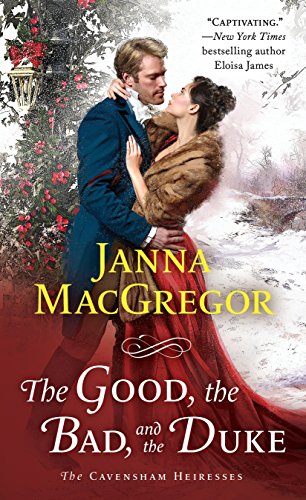 This romance really starts with one of my worst nightmares: having a journal—chock full of salacious imaginings and big secrets and worst and best moments—stolen. The journal belongs to Lady Daphne Hallworth, a beautiful 25-year-old spinster who has taken refuge in writing—and good behavior—since the death of her sister. How far will she go to get it back? Pretty far. First, a gambling hall. And when her first efforts aren’t successful, she’ll even accept help from Paul Barstowe, Duke of Southart, her brother’s former best friend whom she admired as a child, despite his hellion reputation. That reputation has only grown worse, and for good reason. Throughout his life, Paul sought to instigate responses from his cold, cruel father by being a debauched wastrel, and now he has to confront the sins of his past. He wants to be a better man, but redemption is hard in an elite society where people remember everything, especially those who break convention. Society’s censure is worst when it comes to women, a fact that drives Daphne to search for her journal even harder once a page from her journal is printed in a famous rag newspaper (ahh, worst nightmare!). Helping Daphne find her journal can be a way for Paul to win some favor back from her brother. It’s another way for him to redeem himself. But Paul and Daphne are also drawn to one another, despite both being aware of the obstacles they face. Can Daphne forgive Paul for the man he was? And more important, can Paul find himself worthy of lasting happiness? The Good, the Bad, and the Duke is the second MacGregor book that I’ve read, and there was so much that I enjoyed about it. MacGregor is a fine writer who skillfully portrays the elite society the characters live in—their homes, their dress, their motivations and fears. And she doesn’t hold back in the physical department. The interactions between Paul and Daphne are flirtatious, provocative, and surprisingly steamy. Daphne is particularly enjoyable on this end—she’s imaginative and bold in ways that I admired and appreciated (even if I was a little confused about where all of that came from, given her innocence and the time period, etc.). The romance between them was beautiful—how they each see something in the other that others don’t see. That’s what I loved most about this sweet, seductive book. Both Paul and Daphne have second chances to re-invent themselves. For Paul, it’s about becoming someone better; for Daphne, it’s about becoming someone less outwardly perfect. And if the characters are brave enough, they can meet each other in the middle. **I received an ARC of this book from Netgalley, but all opinions provided are my own.
If I go to my shelves, I can tell you which books were gifts and who they are from. I remember them because books are the best gifts you can give anyone, it's a known fact, pleasedon'tquestionmeonthis. [In fact, one of my Christmas fantasies is that someone (read: Daniel!) has given me several pretty books, and they are wrapped underneath the tree, and I read them in quiet moments when I'm stretched out on a chaise. Coming back to Earth now....]
Sometimes you want to give someone a book but you're not sure which one. That's why I've assembled a gift guide with some of my favorites* below. Have you read--and loved--any of these? Someone who wants to read a classic, re-imagined: Jo Baker’s Longbourn. I loved seeing Pride and Prejudice re-written and focused on the servants in the Bennet household. This book is so luminous, so marvelous, that I think about it now with great fondness. Someone who likes their romance extra spicy: Tessa Bailey’s Getaway Girl. This is one of my favorite romance novels ever. Tessa Bailey knows how to write a sexy, dirty story (does she ever!). This story is also so lovely it might make you cry, and the heroine makes dirty Christmas ornaments, so there’s a Christmas connection. Someone who wants to read a mind-melting thriller: Cristin Terrill's All Our Yesterdays, reviewed here, a pulse-pounding YA sci-fi read. Or try Blake Crouch's Dark Matter, a book that gave me all the feelings, and that was, for all its brilliant plot, ultimately a love story. Someone who wants to read an unconventional historical romance: Looking for a super original slice of historical romancelandia? Try Minerva Spencer’s Dangerous, reviewed here. Or try Elisa Braden, a historical romance author I discovered last year who writes beautiful love stories about people with lots of baggage. Someone who wants a mystery with a healthy helping of sexual tension: Robert Galbraith’s Lethal White, the latest installment of Strike and Robin. Also recommended: one of my favorites, Deanna Raybourn’s Veronica Speedwell series, starting with A Curious Beginning. You all, I think that Veronica Speedwell is one of my favorite characters being written today. She's acerbic. Brilliant. Brilliantly independent, but loyal to a fault. Honest about who she is and what her needs are. She is fantastic. Someone who wants a heart-grabbing, heart-stopping fantasy: Sarah J. Maas’s A Court of Thorns and Roses, reviewed here. This was the year of Sarah J. Maas for me, and it has been incredible. I could go on and on about how fantastic these books are. (Give me a drink, and I will). Someone who wants an enemies-to-lovers romance with more heat than a volcano demonstration at a hibachi restaurant: Sally Thorne’s The Hating Game. Reviewed here. This book is for anyone, I mean anyone, who might love a love story. I’ve never read enemies-to-lovers done so well. The tension that Thorne creates between the characters is insane, and the characters's eccentricities are endlessly amusing and endlessly lovable. This story is hilarious and full of heart (and also stratagems, mind games, and banter). Also recommended, Lucy Parker’s Act Like It, which is set in London’s theatre world and features the grumpiest of grumpy heroes and a fake romance plot. So good! Someone who wants to read an incandescent book about the relationship between a child and a parent: Kristin Hannah’s The Great Alone, reviewed here, or Hannah Tinti’s The Twelve Lives of Samuel Hawley, reviewed here. Both of these books had me in a state of wonderment. The haunting images each author evokes—the tenderness and the fury of each story—the fragile and yet strong young female protagonists. It’s all done so brilliantly that these books will stay with me for life, I think. Someone who loves YA: You all, I’m kind of cheating with this broad heading, but I read so many great YA books this year, including Flight Season, a book that I consistently return to. This gem is about finding out who you are when the chips are down (is this a gambling expression?) and the grace we can extend ourselves and others. So beautiful. And Adrienne Young's Sky in the Deep, reviewed here, which left me feeling like I’d been sitting under the stars for hours. Also, Julie Buxbaum's Tell Me Three Things, reviewed here, a book that felt like I could have written it, if I were an amazing writer who could write from the grief-stricken soul, and Jenn Bennett's Alex, Approximately, reviewed here, a book about falling in love that I fell in love with. *the nerdiest part of me wants you to know that I have a million favorite books, and this is not an exhaustive list. Last week I was hit with a one-two punch of historical fiction. First, it was Kristin Hannah’s brilliant The Great Alone, set mostly in 1970s and 1980s Alaska. Then it was Eliza Graham’s tautly paced The Lines We Leave Behind, a suspenseful story of an amnesia-afflicted woman who is in an asylum post-WWII that played havoc with my nerves.
When the book opens, we’re in 1947 England, and Maud’s psychiatrist Dr. Rosenstein encourages her to write down her memories. This is what Maud initially remembers: in 1943 Maud Knight was a well-off young woman living in Blitz-era London, seemingly without purpose. She had affairs, she had an unimportant job, but no higher calling. She was approached by a magnetic man, Robert Havers, who expressed admiration for her special talents—including her ability to speak Serbo-Croat, to observe details keenly, to memorize them—and he offered her a position as a British secret agent aiding Partisan (communist) forces fight other fringe groups (and ultimately the Germans) in Yugoslavia and rescuing downed Allies and returning them back home. Maud accepts the position, and she’s given the name Amber. In Yugoslavia, she learns real danger, real pain, for the first time, and she becomes aware of the complicated lines wartime can drive between family members and neighbors, and how it can test the physical self and the spirit. That was Maud then. But something’s happened in the years since, to turn someone who served her country so admirably into a mental asylum resident, and that’s the gripping story that unfolds for Maud, Dr. Rosenstein, and the reader, page by page. The Lines We Leave Behind tells a story that I haven’t quite heard before, in a place that I haven’t a read a story set in. Graham deftly portrays the toll of war, illuminating how it changes people, and how it makes heroism and depravity possible—sometimes within the same person. This is a heavy story (seriously), but it is also one that is not without redemption, and those slices of light are what I like best about it. This well-written book is by turns exhilarating and disturbing, and entirely haunting. **I received a copy of this book from Netgalley, but all opinions provided are my own.
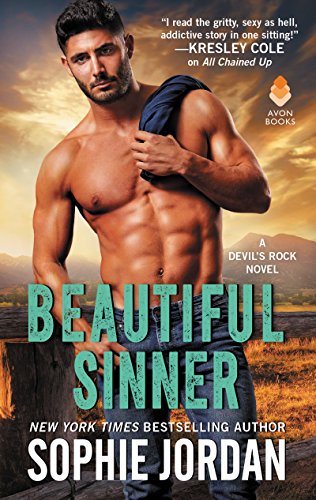 Sophie Jordan’s Beautiful Sinner hit me right in the heart. Days later I’m still feeling the glow of a Happily Ever After realized; I’m still floating from the sweet justice of two lovely characters getting the ending they deserve. The latest release in her Devil’s Rock series, Beautiful Sinner tells the long-awaited story of Cruz Walsh, a man who confessed to a murder which he did not commit (for reasons revealed later in the novel) and who has now been exonerated and released from prison. Though Cruz has been deemed innocent of the crime, he’s still viewed as guilty by most of Sweet Hill’s residents and as an object of endless curiosity by many of the others. Reporter Gabriella Rossi never wanted to return to the place where she was bullied by her classmates and called “Flabby Gabby,” but she drops everything—even taking a sabbatical from her job at an Austin newspaper—so that she can care for her Nana. When her boss asks her to get the inside scoop on Cruz—reminding her that the woman he was believed to have murdered was her cousin—Gabriella is dismayed and interested. She’s a truth-seeker and Cruz’s story—the mystery of why he did what he did—calls to her. But Cruz doesn’t want to share his secrets, especially with the media, even if a night spent in a locked janitor’s closet reminds him of how much he’s always been attracted to Gabriella. This story is unbelievably sweet and the main characters are admirable: both Cruz and Gabriella nobly sacrifice their own opportunities so that they can take care of people they love. BUT don’t be fooled: Beautiful Sinner is also hot, hot, hot. The chemistry between Cruz and Gabriella is undeniable and Gabriella can’t help but want to act on it, even if she knows that sex with Cruz would only complicate things since they’re both haunted by the past. Will Cruz and Gabby decide that they’re both worthy of a Happily Ever After? That it’s worth fighting for? Beautiful Sinner pretty much blew me away. I rooted for Cruz and Gabriella. I wanted them to see how good they were. I fell in love with them. And even after the amazing Epilogue, I was greedy for more. **I was given an ARC of this book from Edelweiss+, but all opinions provided are my own. The Great Alone, set chiefly during 1970s and 1980s Alaska, took me on an adventure that I don’t think I’ll forget. The wilds of Alaska. The inimitable love between mother and daughter. The brightest—and darkest--depths of the human spirit. It’s all here, in this epic, masterful novel, and when I finished, I felt like I had been privy to something terrifying and beautiful, something that changed me and opened me up in the ways that the best literature does.
Thirteen year old Leni’s father Ernt Allbright was a Vietnam POW, and this fact has a significant impact on their life in 1970s Washington. He’s prone to nightmares and explosions of temper; he’s consistently fired from jobs. When he receives a letter from a fellow soldier’s father informing him that his son left his cabin and plot of land in the wilderness of Alaska to Ernt and his family, Ernt is ecstatic. This opportunity—to live off the land, to escape the evil of modern America—is exactly what he thinks he and his family need. Leni is not so sure. There are times when her father frightens her, when the Allbright home confuses her. But she loves her dad too—isn’t love a complicated thing?—and she and her mom are “two peas in a pod,” so she'll follow her anywhere. When the Allbrights arrive in Kaneq, Alaska and find their decrepit cabin, Leni and her mother are taken aback—particularly after the warnings about winter they receive from their few neighbors—but Leni’s father is blindly enthused. But as the days pass, Leni starts “to worry as much about the dangers inside of her home as outside of it.” There’s little money, and they’re essentially starting over in this forbidding landscape, where, as the locals say, “you can make one mistake. The second one will kill you.” They’re not ready for the deprivations of winter. And worst of all: there’s her father’s anger, taking up space in the cabin, manifesting itself in explosive, violent ways, showing itself on her mother’s body. The winter darkness exacerbates it, and so does her father’s uncontrollable jealousy, which her mother attempts, at times, to ignite. Will the Allbright family survive life in Alaska? Will they survive life with Ernt and his anger, and the wearying toll that their strategizing, denying, and hiding has on them? Hannah is a brilliant writer. Take, for example, her descriptions of Alaska, which becomes a great character in the book. She describes the landscape and the weather of this place frequently, and yet she finds new words, new phrasings, to reveal the dangerous beauty and that left me awestruck. Or how she renders the Allbright’s small world, how she illuminates the cracks, tensions, and explosions with sensitivity, sometimes using full force and sometimes delicacy, to show exquisitely and devastatingly what it’s like to live with an abusive person. Like Leni’s mother says, for all the “bad” in their story, there’s “fun, too…and adventure.” And the same could be said for this book itself. The Great Alone is set in the wilds of 1970s Alaska, and much of the action is predicated on the desires/fears/dislikes of an abusive man, but that’s not where it ends, and that’s not what Leni’s story is restricted to. It’s also about growing up. Falling in love. Finding one’s way to truth and deciding what one can and can’t live with. Understanding. And love. So much love. I’m a sucker for a Pride and Prejudice re-telling and Ibi Zoboi’s Pride is a “remix” unlike any other I’ve read. Set in Bushwick, Brooklyn and featuring the five Haitian-Dominican Benitez sisters, Pride took me on a journey that felt respectful toward Austen's original and yet thrillingly fresh, new, and authentic. You’ll see the skeletons of Austen’s characters in this story, but they’re re-conceptualized and sent out into the world as daring new creations, brimming with verve and vitality, obviously eccentric but treated by the narrator lovingly—and not cruelly—for the things that make them unique.
Zuri “Z” Benitez is Bushwick. She’s proud of where she comes from and who she is. She's an almost senior who lives in a small apartment where she and her four sisters share a bedroom; she's the daughter of hard-working parents who are highly respected in their neighborhood; she's occasionally embarrassed by her loud mother and three of her sisters, but she loves all of her family members fiercely, passionately. So she’s not happy when rich people begin gentrifying the place she’s always called home. The new black family across the street, the Darcys, is part of the problem. There’s the dad and a snobby mom and two teenage sons: Ainsley, who takes an immediate fancy to Z’s sister Janae, and Darius, who is insufferably stuffy and arrogant and who doesn’t even try to fit into his new neighborhood. Do Z and Darius have anything in common? Is there any common ground for them to latch onto (but why would she want to when he treats her and her family so horribly, she wonders)? In Zoboi’s hands, this re-telling is about the different life circumstances between a young woman and man and how those—and their respective feelings of pride regarding their backgrounds—affect the ways they view the world and the people around them. But Pride is also about being young and black, and asserting oneself—being oneself—in a world that doesn’t always appreciate that. And how blind pride of all kinds—whether it’s in oneself or one’s family or one’s neighborhood—can lead to misunderstandings, self-rigidity, and stagnation, to a refusal to consider other possibilities. Z is a charismatic narrator, with a beautiful way of seeing her world and of capturing her impressions in poetry. She’s the force here, even though I appreciated how complicated Darius is, how dynamic, and how warmth—for Zuri—shines underneath his formality. Most of all, I adored how alive Pride is, and the fierce joy ringing from every page, even through the sadness. |
About me.Give me that HEA, please.
Join my mailing list.Want to receive a weekly email with links to my latest blog posts? Sign up below!
Archives
April 2024
Categories
All
|
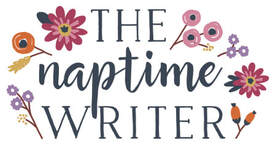
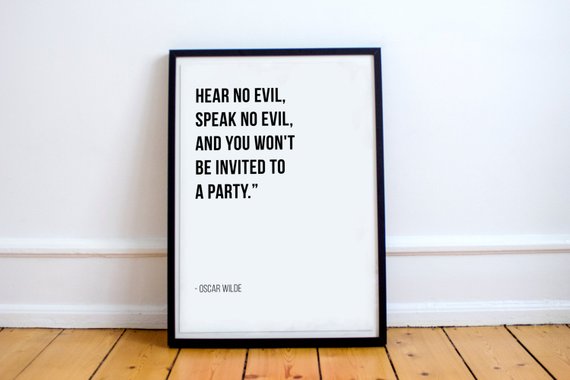




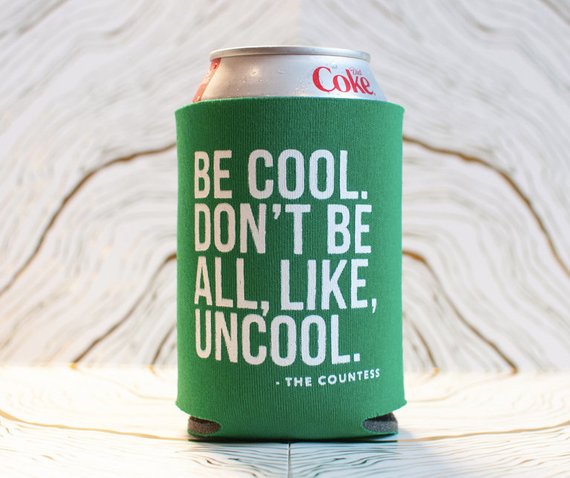

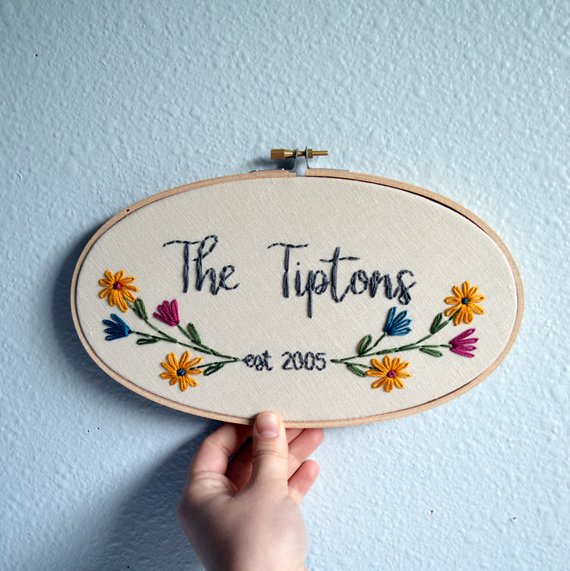
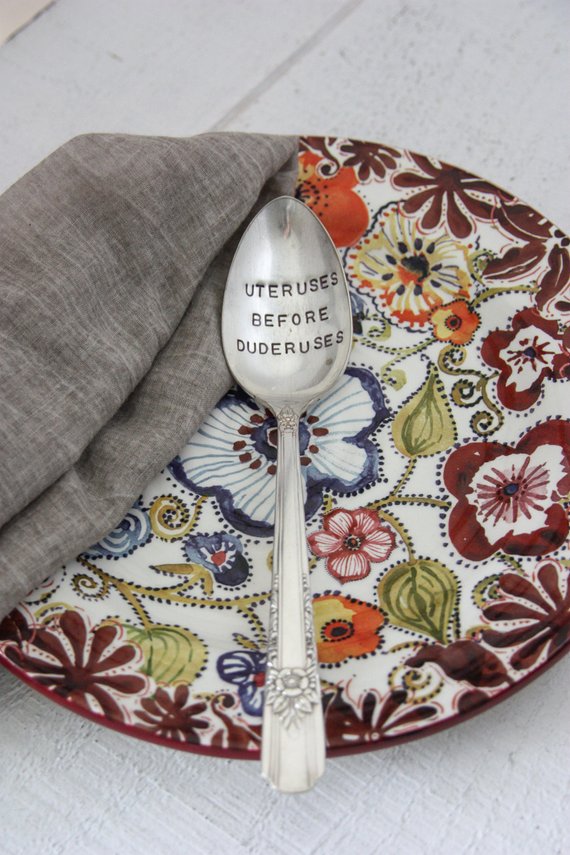
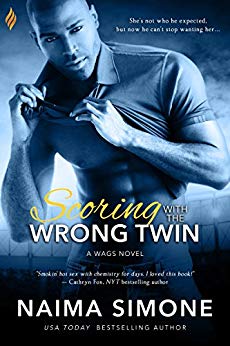
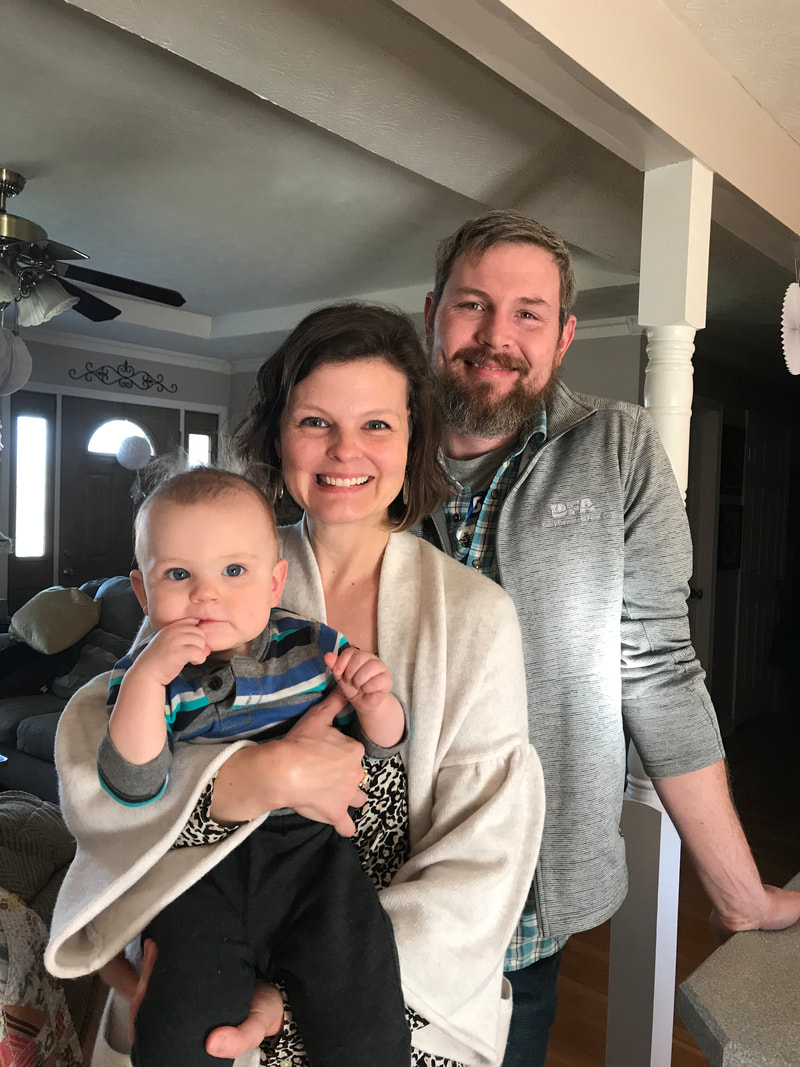
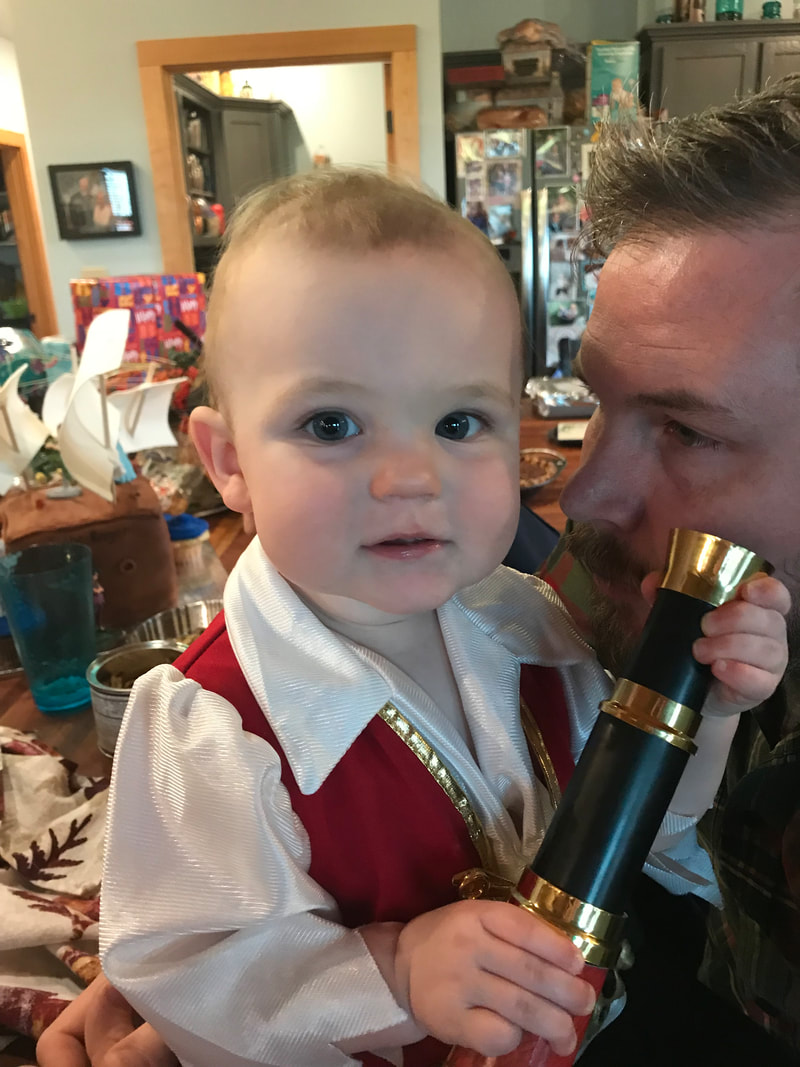

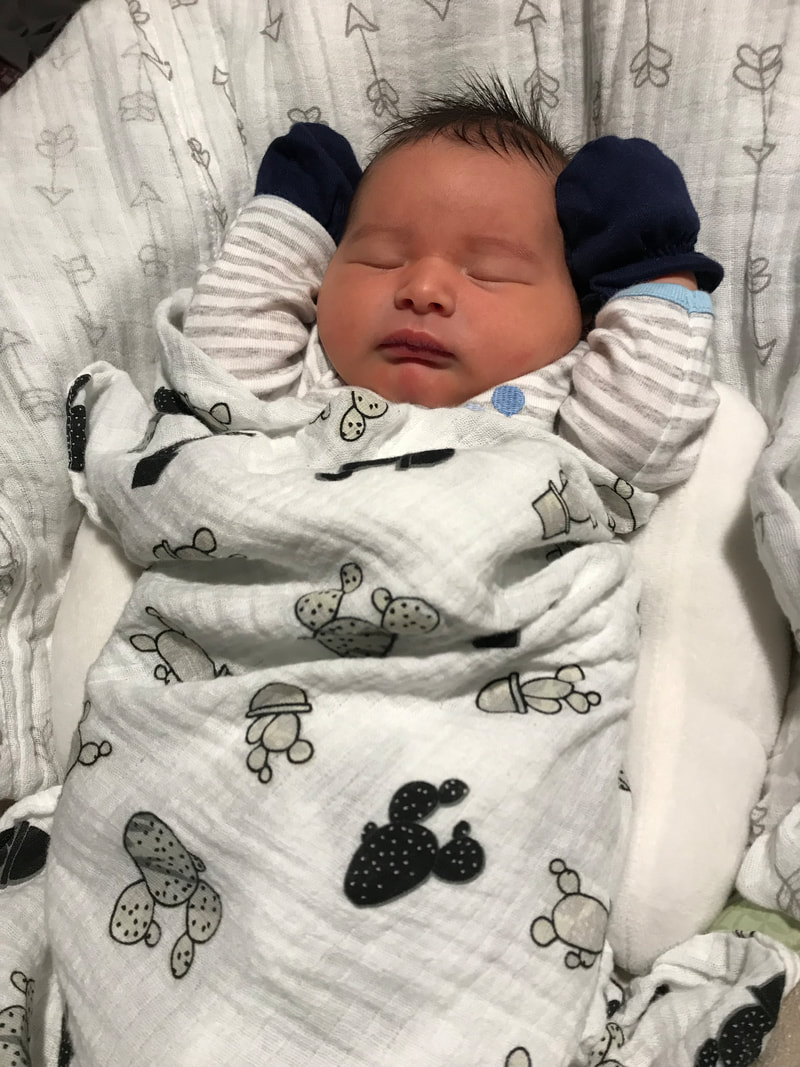

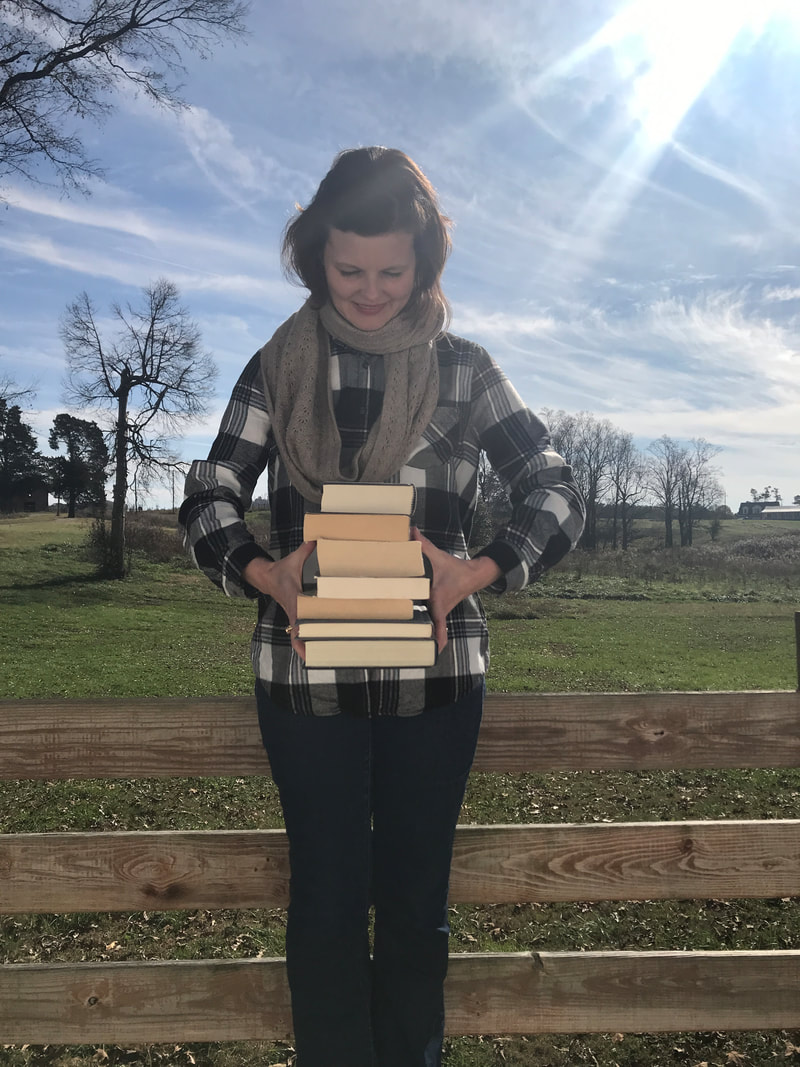
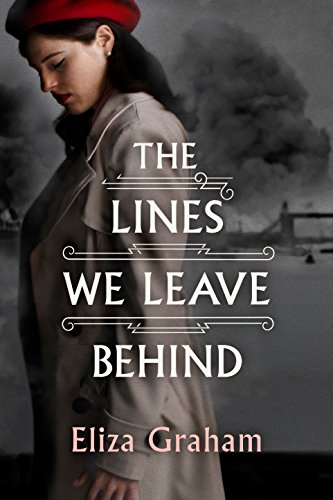
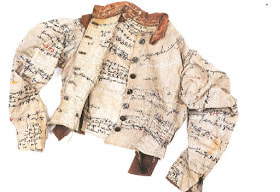
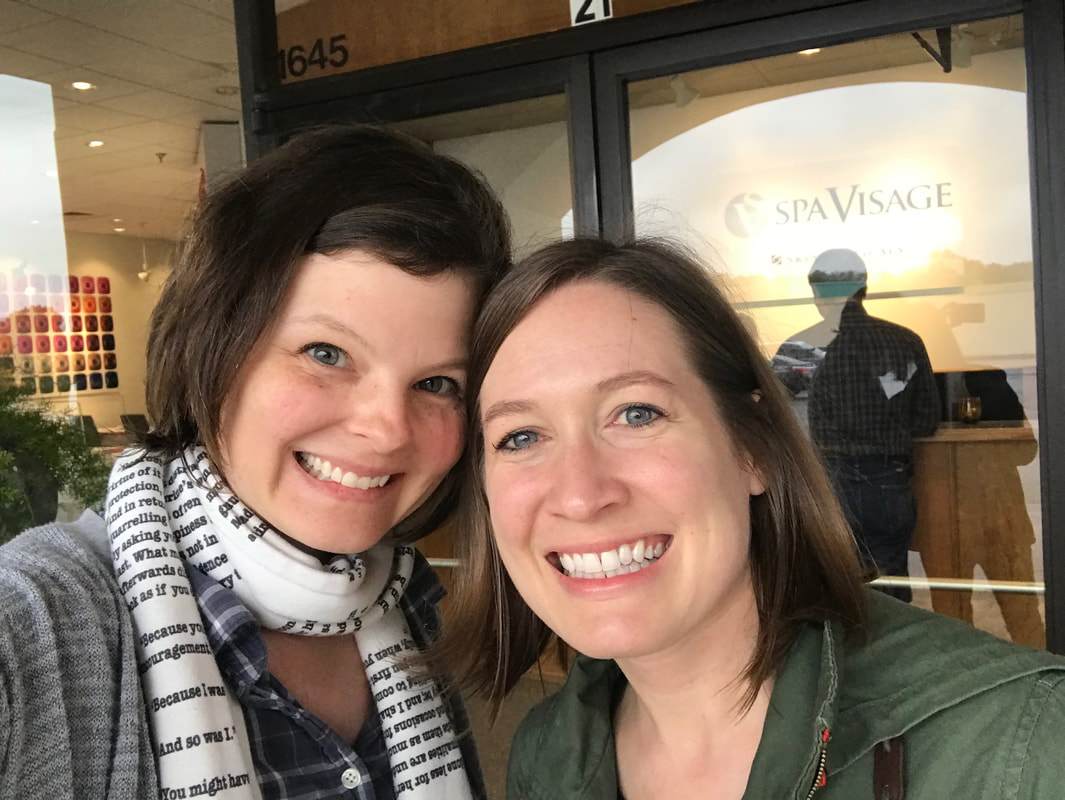

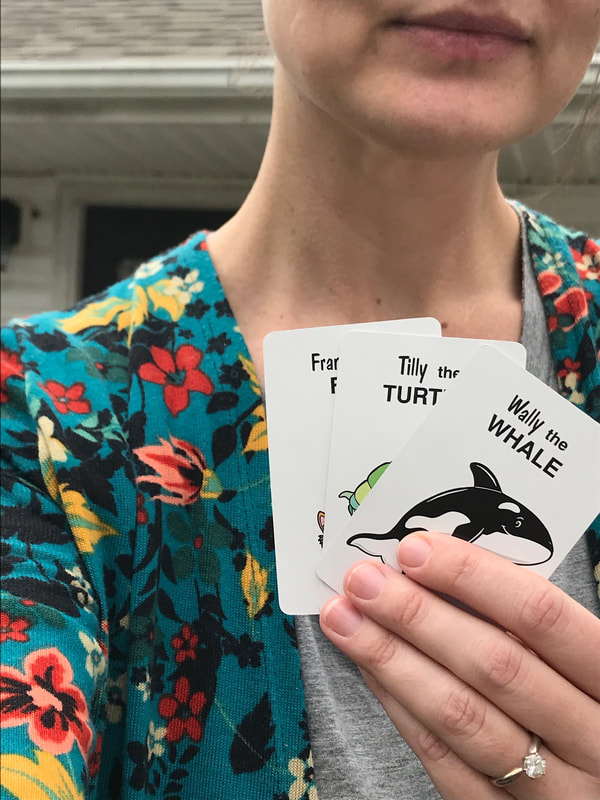

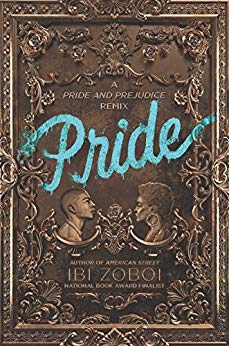
 RSS Feed
RSS Feed
